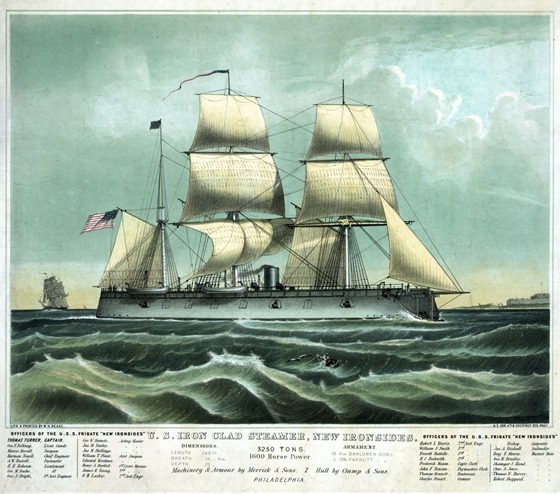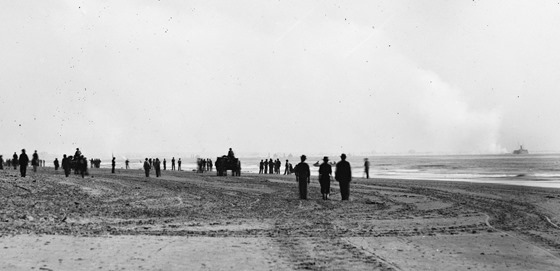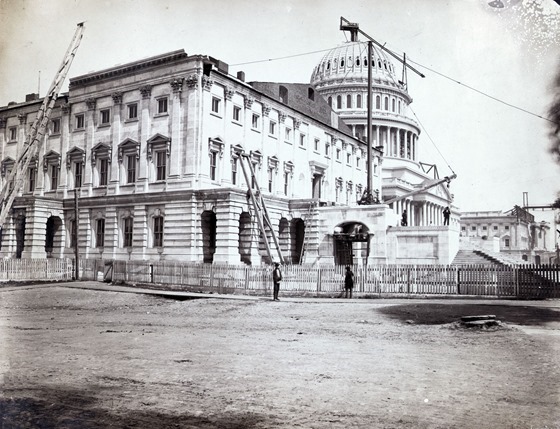Wednesday, 15th.—We hobbled on; Elrod somewhat improved, but I was not. When in about three miles of Pearl River, which we must cross to-night or be cut off, we saw a man coming on horseback. Elrod begged me to try to get the man to let me ride behind him to the river. I at first refused, but after his urging, saying he could make it to the river before dark, and for me to wait on this side until he came, I consented to try the man. He agreed to take me, and by hard work they got me on behind without anything under me. He turned out to be drinking heavily, but took me to the river as hard as his horse could run, for which I paid him $4.00 and found myself badly skinned from the hard ride bareback. As it was getting dark, my friend, Elrod, made his appearance, and though he was very tired, we crossed over Pearl River near Byram’s Station, on New Orleans Railroad. Saw Yankee foragers. Got over river just in time; skirmishing towards Jackson.
Monday, July 15, 2013
15th.—In Richmond, to-day, I saw my old friend, Mrs. E. R. C, looking after her sons. One was reported “wounded;” the other “missing.” This sad word may mean that he is a prisoner; it may mean worse. She can get no clue to him. His company has not come, and she is very miserable. Two mothers, one from Georgia, another from Florida, have come on in pursuit of their sons, and are searching the hospitals for them. They were not in our hospital, and we could give them no information, so they went on to others. There is more unhappiness abroad among our people than I have ever seen before. Sometimes I wish I could sleep until it is over—a selfish wish enough; but it is hard to witness so much sorrow which you cannot alleviate.
U.S. Iron clad steamer, New Ironsides
Library of Congress image.
From Wikipedia:
USS New Ironsides was a wooden-hulled broadside ironclad built for the United States Navy during the American Civil War. The ship spent most of her career blockading the Confederate ports of Charleston, South Carolina, and Wilmington, North Carolina, in 1863–65. New Ironsides bombarded the fortifications defending Charleston in 1863 during the First and Second Battles of Charleston Harbor. At the end of 1864 and the beginning of 1865 she bombarded the defenses of Wilmington in the First and Second Battles of Fort Fisher.
Although she was struck many times by Confederate shells, gunfire never significantly damaged the ship or injured the crew. Her only casualty in combat occurred when she was struck by a spar torpedo carried by the CSS David.
New Ironsides was 230 feet (70.1 m) long between perpendiculars and 249 feet 6 inches (76.0 m) long overall. She had a beam of 57 feet 6 inches (17.5 m) and a draft of 15 feet 8 inches (4.8 m). The ship displaced 4,120 long tons (4,190 t), 495 long tons (503 t) more than her designed displacement. To minimize her draft, New Ironsides was given a wide beam and a flat bottom. She had a rectangular ram that projected 6 feet (1.8 m) forward from her bow. The ship’s crew consisted of 449 officers and men.
Soldiers on beach of Morris Island. In distance, ironclads, including USS New Ironsides and five monitor-class warships are in action against Fort Sumter and Fort Moultrie in Charleston harbor. (Source: 99 Historic Images of Civil War Charleston, ed. by Garry Adelman, John Richter, and Bob Zeller, Center for Civil War Photography, 2009, p. 18); from photographs by Philip Haas and Washington Peale.
Image cropped to show action.
Library of Congress image.
__________
 Note – This image has been digitally adjusted for one or more of the following:
Note – This image has been digitally adjusted for one or more of the following:
- fade correction,
- color, contrast, and/or saturation enhancement
- selected spot and/or scratch removal
- cropped for composition and/or to accentuate subject matter
- straighten image
July 15.— Received orders to march to Berlin. We marched to Keedysville, and from there to Crampton’s Gap. Our corps did not go through the Gap, but headquarters were at Burkettsville on the other side of the Gap. Day pleasant most of the time. The march was long and tiresome, as other corps were ahead of us.
U.S. Capitol under construction, Washington, D.C., south-east view, July, 1863; photo by Andrew J. Russell.
Library of Congress image.
 __________
__________
Note – This image has been digitally adjusted for one or more of the following:
- fade correction,
- color, contrast, and/or saturation enhancement
- selected spot and/or scratch removal
- cropped for composition and/or to accentuate subject matter
- straighten image
by John Beauchamp Jones
JULY 15TH—There was a rumor of another battle beyond the Potomac, this morning, but it has not been confirmed.
From Charleston we have no news; but from Jackson there has been considerable fighting, without a general engagement.
The Enquirer and Sentinel to-day squint at a military dictatorship; but President Davis would hardly attempt such a feat at such a time.
Gen. Samuel Jones, Western Virginia, has delayed 2000 men ordered to Lee, assigning as an excuse the demonstrations of the enemy in the KanawhaValley. “Off with his head—so much for Buckingham!”
There is some gloom in the community ; but the spirits of the people will rebound.
A large crowd of Irish, Dutch, and Jews are daily seen at Gen. Winder’s door, asking permission to go North on the flag of truce boat. They fear being forced into the army; they will be compelled to aid in the defense of the city, or be imprisoned. They intend to leave their families behind, to save the property they have accumulated under the protection of the government.
Files of papers from Europe show that Mr. Roebuck and other members of Parliament, as well as the papers, are again agitating the question of recognition. We shall soon ascertain the real intentions of France and England. If they truly desire our success, and apprehend danger from the United States in the event of a reconstruction of the Union, they will manifest their purposes when the news of our recent calamities shall be transported across the ocean. And if such a thing as reconstruction were possible, and were accomplished (in such a manner and on such terms as would not appear degrading to the Southern people), then, indeed, well might both France and England tremble. The United States would have millions of soldiers, and the Southern people would not owe either of them a debt of gratitude.
Vicksburg, Wednesday, July 15. All quiet and sleepy. Very warm. No mail or news.









